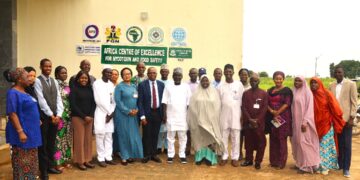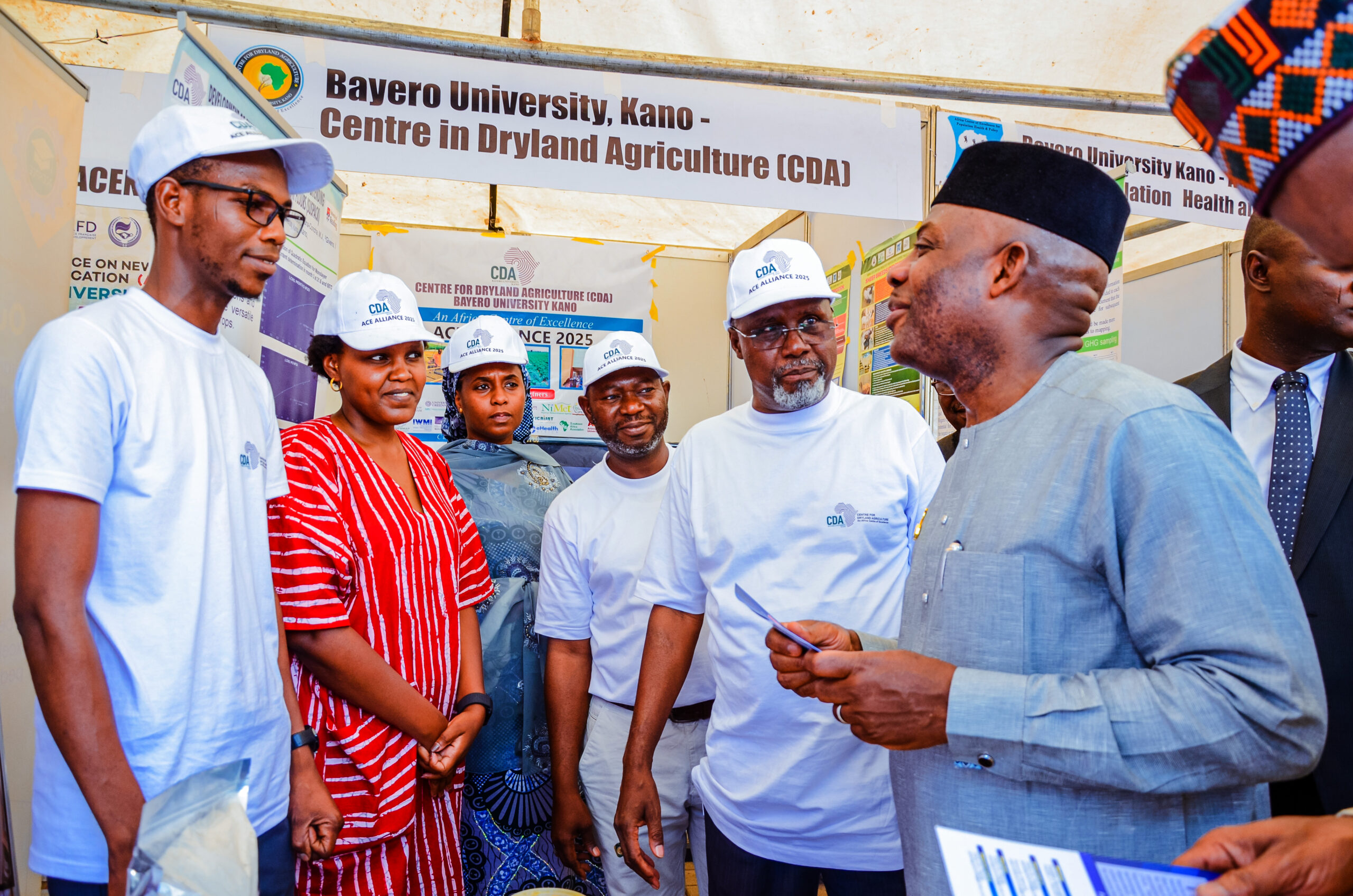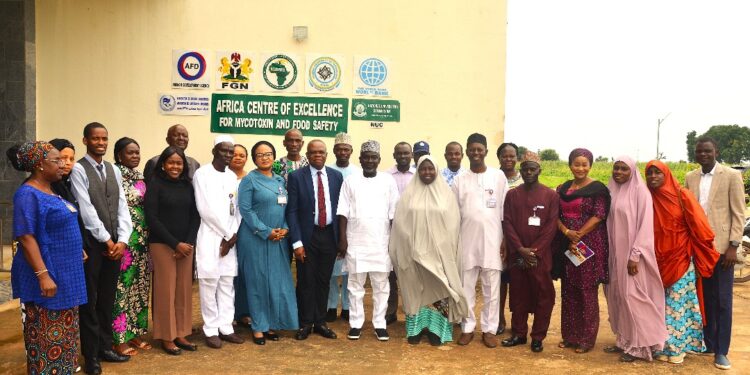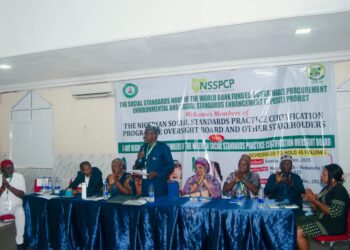By Lydia Legbo
The Africa Centre of Excellence for Mycotoxins and Food Safety (ACEMFS) at the Federal University of Technology, Minna (FUTMINNA) has once again brought to the limelight pressing food safety, environmental, and public health challenges, as well as innovative approaches to addressing them.
These issues were the themes of discourse at the recently concluded PhD Exit Seminar and MTech Internal Defence of its postgraduate students at the Centre’s Complex.
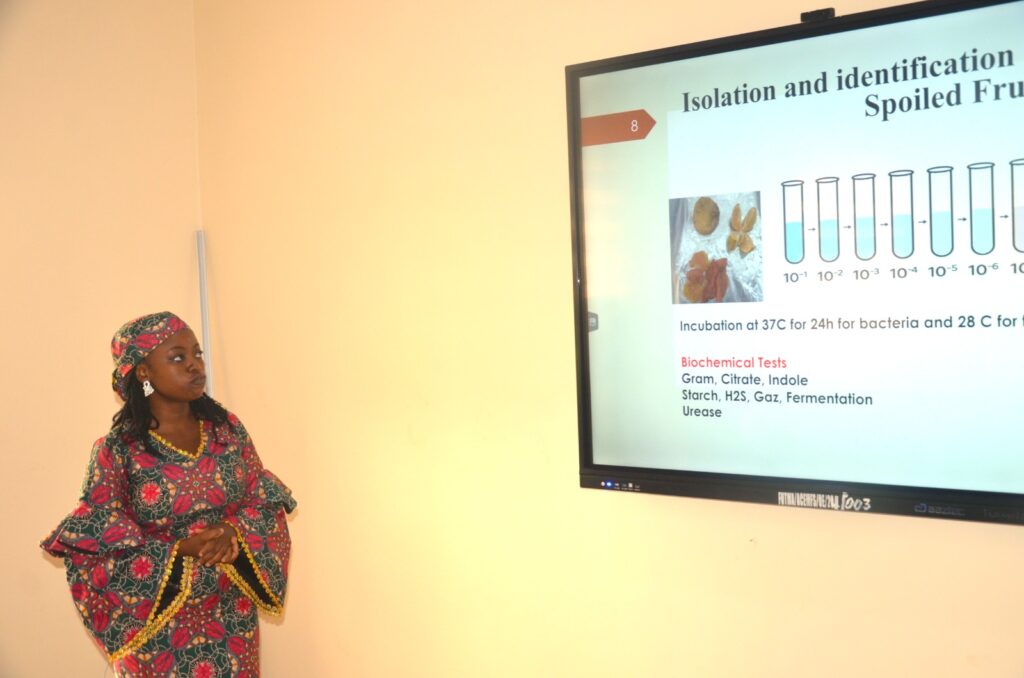
A PhD student, Ilunga Ciuma Kakasu Calvin, presented his seminar on Mycotoxin Levels Risk Assessment and Biocontrol Strategies of Groundnut Marketed in Kinshasa, Democratic Republic of the Congo, and Minna, Nigeria. His findings confirmed frequent groundnut contamination above international safety thresholds, underscoring the urgent need for risk assessment and biocontrol interventions to safeguard public health and trade.
Another PhD student, Muhammad Asabe Hajara, examined Molecular Detection of Virulence Genes and Antibacterial Resistance Profile of Listeria Monocytogenes from Selected Ready-to-Eat Foods in Abuja, Nigeria. She revealed high levels of contamination in RTE foods, posing serious public health risks, particularly to vulnerable populations.
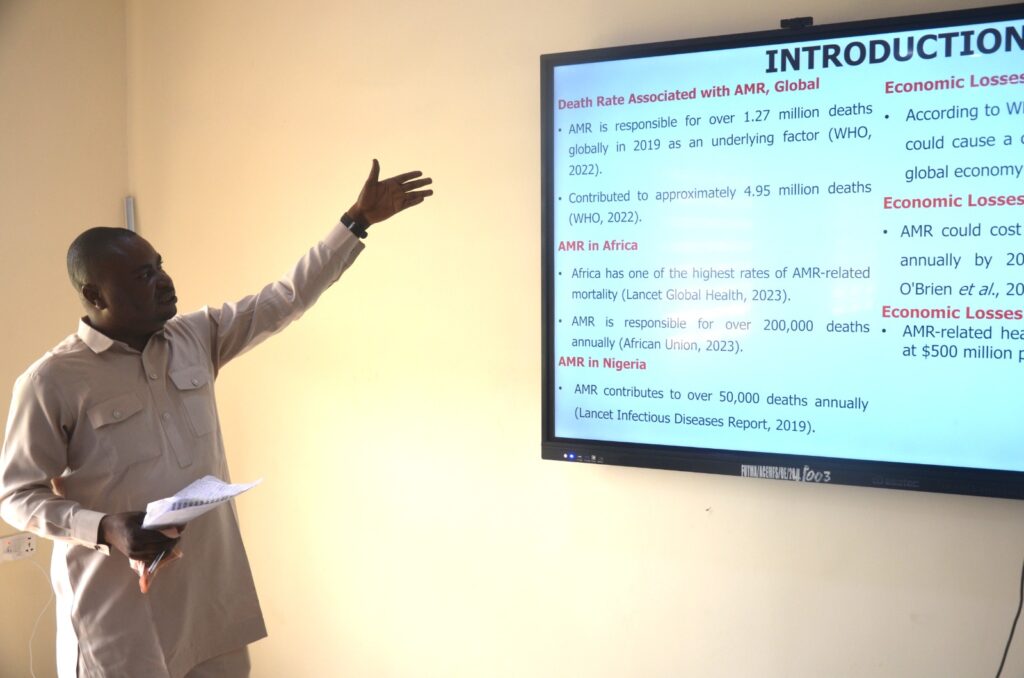
Muhammad Sakinatu Ndagiman focused on Consumer Exposure and Risk Assessment of Pesticide Contamination in Selected Edible Vegetables in Niger State. Her study revealed significant risks from pesticide residues due to farmers’ poor handling practices and low awareness, stressing the need for improved regulation and management.
Bwami Linus Stephen investigated the Remediation of Pesticide Residue (Atrazine) on Farmlands within FUT Minna. His research addressed the persistence of atrazine herbicide in agricultural soils, assessing the biodegradation potential of selected bacterial and fungal species under field conditions.
Sadic Akanchaliwari Majeed presented on Development of Nano adsorbents Based on Multiple Metal Oxide Nano-Composites on Microalgae Support for Fishpond Wastewater Treatment. His study demonstrated the potential of nano-algal composites as low-cost, eco-friendly, and efficient alternatives to conventional wastewater treatment methods in aquaculture.
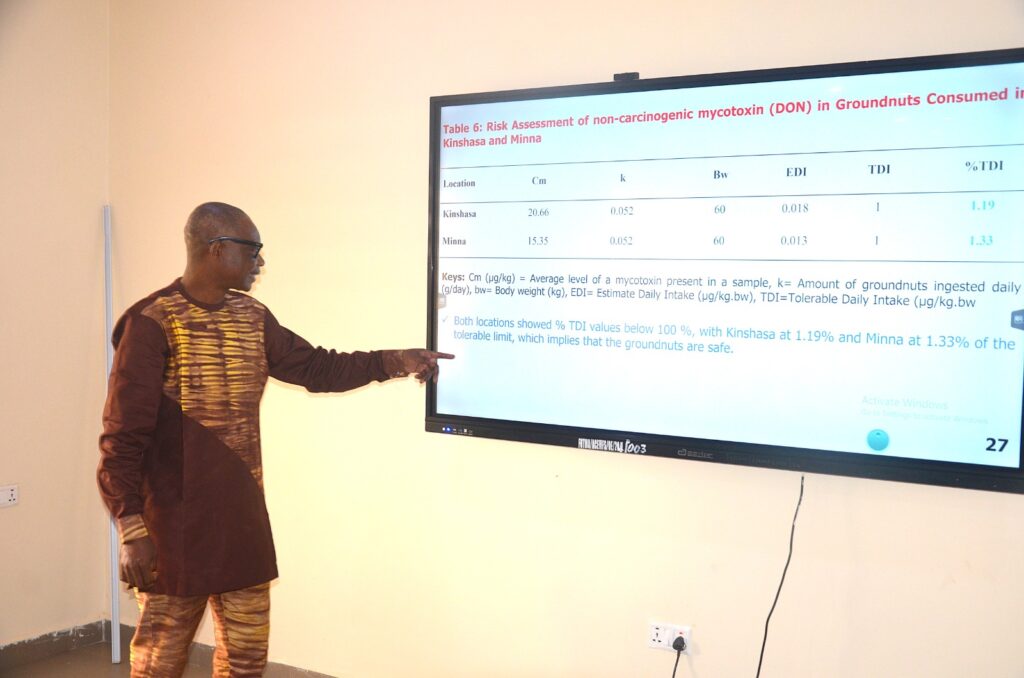
Aliyu David Femi discussed Molecular Characterisation of Antimicrobial Resistance Genes in Salmonella Typhi and Escherichia Coli Isolated from Blood and Urine Samples of Diabetic Patients. His findings revealed the growing challenge of antimicrobial resistance among diabetic patients, calling for continuous surveillance, prudent antibiotic use, and molecular screening for resistance genes.
Galadima Grace explored Bio-preservation of Selected Fruits Using Bacteriocins Produced by Lactobacillus spp. Isolated from Raw Cow Milk. Her research addressed post-harvest fruit spoilage and consumer demand for chemical-free preservation, demonstrating the potential of bacteriocins as natural bio-preservatives.
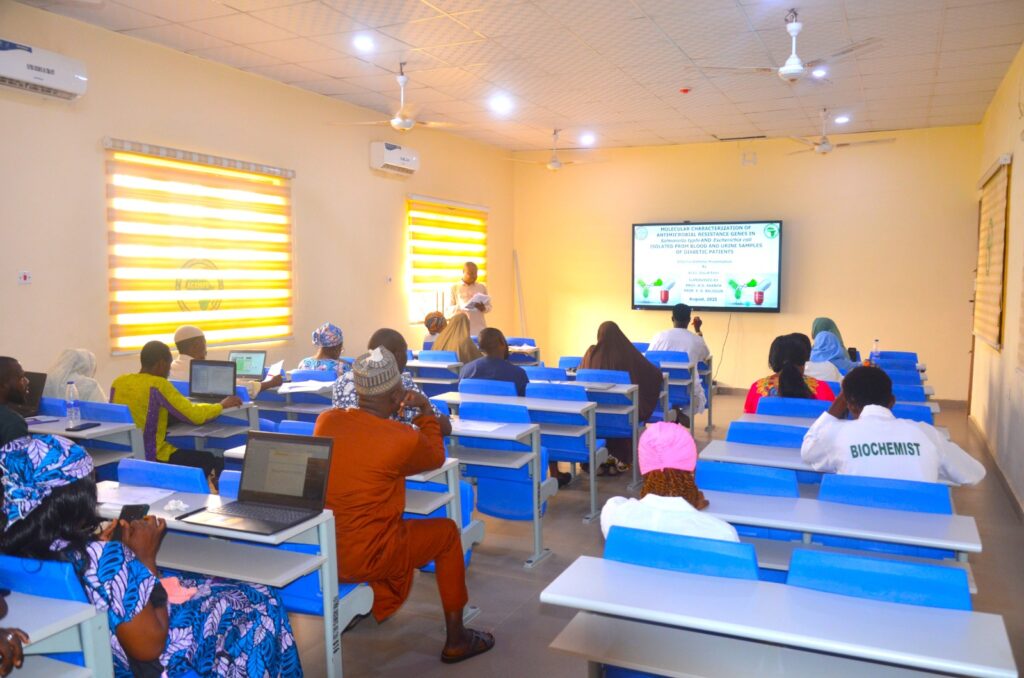
The seminar, which was moderated by Dr Hadiza Kudu Muhammad of the Biochemistry Department, showcased the Centre’s contributions to advancing food safety, environmental sustainability, and public health through innovative research and solutions.
In a related development, the Vice-Chancellor of the University, Prof. Faruk Adamu Kuta, commissioned the Bioinformatics Laboratory of the Centre and simultaneously inaugurated the training of staff and students on its applications.
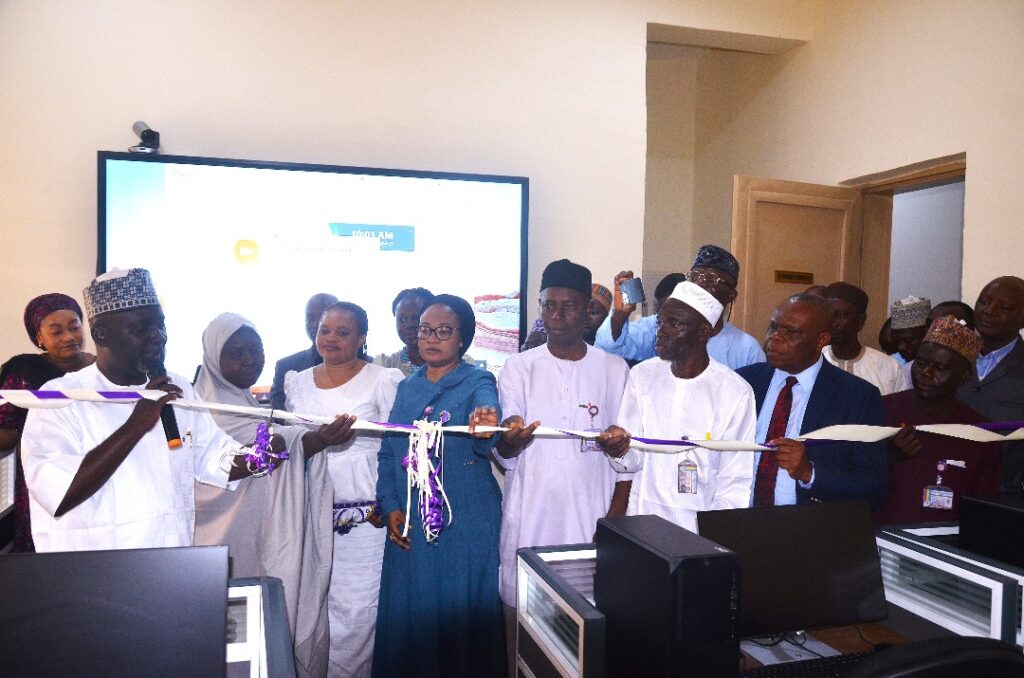
The event, which was held recently at the ACEMFS Complex, marked a significant milestone for the Centre.
In his remarks, Prof. Kuta described the Bioinformatics Laboratory as a breakthrough in life sciences research, noting that it is designed to carry out complex genetic and molecular analyses. He expressed delight that the facility was established under his administration and that FUT, Minna now hosts one of only three such laboratories in Nigerian universities, alongside the Africa Centre of Excellence for Genomics of Infectious Diseases ACEGID, Redeemer’s University, Ede and the Covenant Applied Informatics and Communication Africa Centre of Excellence CApIC-ACE, Covenant University, Ota.
Recalling the pivotal role ACEGID played in COVID-19 vaccine research through its bioinformatics capacity, the Vice-Chancellor noted that the FUT, Minna laboratory would similarly enhance national and global research competitiveness.
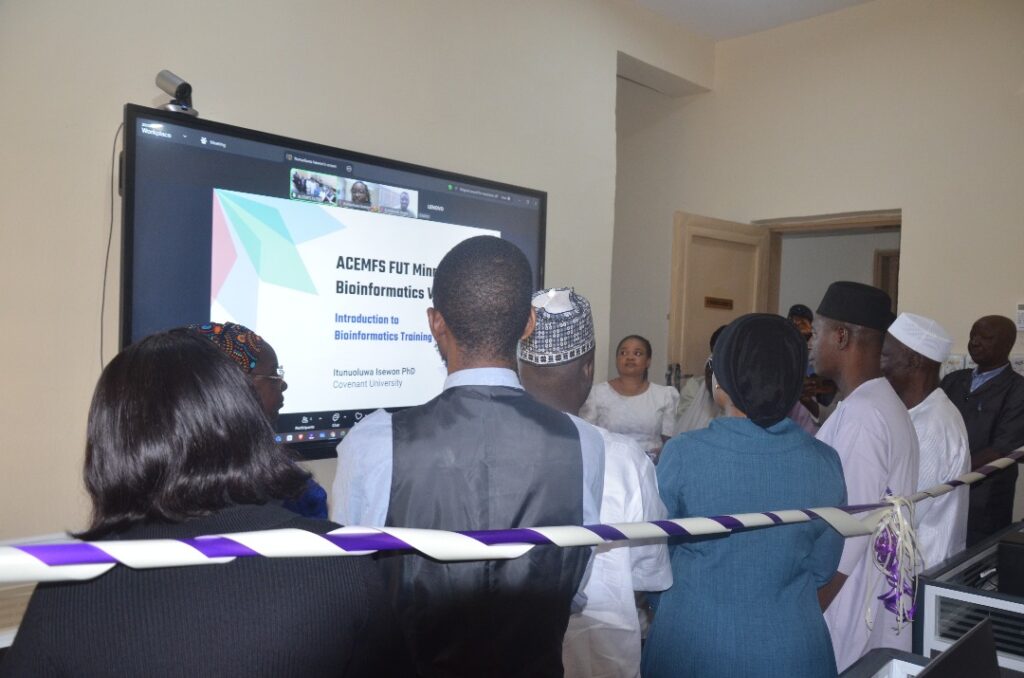
“While many institutions struggled to decode the virus genome, Redeemer’s University leveraged its bioinformatics infrastructure to make remarkable contributions. This new lab will place FUT, Minna, on that same global map”, he stated.
The Vice-Chancellor thanked the World Bank for sponsorship and commended the foresight and commitment of the ACEMFS management for acquiring the laboratory, stressing that it aligns with the Centre’s sustainability plan as donor sponsorship winds down. He added that the facility would not only serve FUT, Minna, but also position the University as a global reference point for bioinformatics research and analysis, particularly with the proposed establishment of the FUT, Minna Medical College.
During the training, Prof. Kuta urged the facilitators from Covenant Applied Informatics and Communication (CApIC-ACE), Africa Centre of Excellence, Covenant University, Ota, to give their best in equipping the trainees with the fundamental skills needed to operate and maximise the lab.
Speaking earlier, the Centre Leader of ACEMFS, Prof. Anthony Hussaini Makun, represented by the Deputy Centre Leader, Prof. Hadiza Lami Mohammed, described the laboratory as a long-awaited project into which the Centre has invested heavily. She explained that bioinformatics integrates computational tools, statistics, and mathematics to interpret biological data, making it indispensable for drug discovery and advanced life sciences research.
“Bioinformatics is the ultimate stage of molecular and life sciences research. Results from wet labs are brought into dry labs for complex analysis. With this facility, our students no longer need to travel elsewhere, as agriculture, engineering, life sciences, and other fields will all benefit from it. This is the top of the tops,” she emphasised.
She further appreciated the University Management for its continuous support and thanked all who contributed to the realisation of the project.
The laboratory is fully equipped with laptops, desktops, servers, PHC units, and relevant software packages.
The training session was facilitated by Dr. Itunuoluwa Isewon, Emmanuel Alagbe, Dorcas Omonigbehin, Emmanuella Ekuri Matumamboh, and Temitayo Ogundimu, all from CApIC-ACE, Covenant University, Ota, Ogun State.
